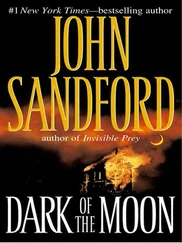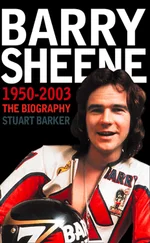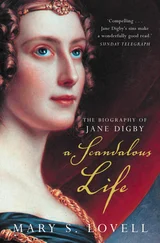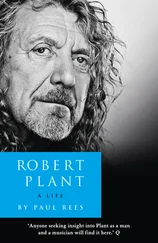He never met his natural father. Ironically, by 1959 Steve was living less than ten miles away from Bill McQueen in Los Angeles. Ever since marrying Neile, and becoming an expectant parent, he’d grown more inquisitive, if no less resentful, about his own upbringing. His feelings on the subject were fast-moving, tiered, and sometimes nostalgic. Bewilderingly changeable, because the bedrock truth was that he didn’t know what he’d do if he found Bill. Following a tip-off, Steve began to methodically comb the Echo Park neighbourhood, close to where he’d lived so miserably with Julian and Berri in 1942. His persistence paid off. One night a woman called, identifying herself as Bill’s common-law wife, and inviting Steve to visit. He arrived at the rundown apartment block only to be told that his father had died of heart failure three months earlier. The woman added that Bill had always watched Wanted on Saturday nights and wondered whether the star wasn’t, in fact, his son. She gave McQueen his father’s photo and an engraved Zippo lighter which, Steve told a friend, ‘I slung down the gutter…Then I went out to a bar. And that was the end of me and the old man.’ Even though the friend, Bud Ekins, ‘believed Steve implicitly’, it was a lie. McQueen kept the photo and left the lighter to his own daughter. After he died, Bill assumed a more prominent and warmly human role in Steve’s life than Julian ever could. A wary affection showed through whenever he talked about either his father or Uncle Claude, who also died that winter. Steve heightened the poignancy of the Indianapolis and Slater years by often drawing attention to the timing of this double blow. As a dedicated actor, he understood and rued the ‘motivating shit’ he saw in both men’s lives. He no doubt regretted it as much as the shit in his own.
The losses killed whatever hopes there might have been that Steve would square his past. Like the Jaguar fish-tailing down the canyon lane, he began to accelerate now.
One late afternoon in May 1959 Steve and a heavily pregnant Neile went shopping for baby clothes on Rodeo Drive. It was a moment of real crisis for them, since one of McQueen’s flings had recently taken to phoning the house and Steve evidently felt the need to confess. According to Neile, ‘For the next few days he brought me flowers and presents and cards. For a while I was so hurt that I refused to speak to him, but eventually we again became a happy couple.’ On this particular hot spring evening Neile began to blanch as she stood at the sweater counter. She fainted away in Steve’s arms just as a young fan approached, her own face wreathed in goofy goodwill:
‘I know it’s a bad time, Mr McQueen. But could I please have your autograph?’
As Steve recalled it, he went ‘fucking nuts’, raving at the girl while simultaneously helping to revive his wife. Neile soon recovered, but McQueen never willingly signed his name for anyone again. It was, for him, the first of several hopeless gestures to privacy.
The McQueens’ daughter, Terry Leslie, was born in Los Angeles that 5 June. With the actor’s instinct for detail, Steve made notes on his first child that night: ‘Oh God, looks like me. Isnt she smart, though – just perfect.’ A boy, Chadwick Steven, followed on 28 December 1960. Steve’s son inherited his mother’s looks and soon settled into his father’s lifestyle. ‘Always smells like hot brakes,’ McQueen would say of Chad approvingly. It was a neat simile. The amount of engineering in Steve’s conversation was impressive. Cars and parts were always apt to have a symbolic importance. Being ‘full of juice’ was as high a tribute as he ever paid to man or machine. Like many of his fictional heroes, McQueen, too, sensed an affinity between happiness and hardware.
But Steve in the flesh kept rather less to the straight and narrow than one of his famous Porsches. Weeks after Terry’s birth, he was keeping company again in the hotel room downtown. He also began entering sports car heats around LA – he won his first ever event, held at Santa Barbara airport – despite promising Neile he’d stop as soon as their first child was born. Instead, semi-professional racing became a sub-plot of Steve’s career; whenever he got behind a wheel he suddenly realised he no longer had to defer to any ‘fucking suit’ – he had what he called the ‘big jolt’, the thrilling alchemist’s gift of turning an inert object into something else. And racing provided a sort of equaliser, particularly for a man with McQueen’s nagging sense of guilt that his day job was ‘candyass’. ‘It gave me a fresh identity,’ he said. ‘I was no longer just an actor, I was a guy competing. And it was real important to me – to have this separate identity.’ The other thing both racing and fatherhood gave Steve was insomnia. Already having trouble unwinding at night, Neile recalls how he snapped when ‘a work crew put up a big new street light which shone right into our bedroom’. When the City refused to move the light, McQueen solved the problem by promptly shooting it out.
One lunchtime that same summer Steve rode his Bonneville into Bud Ekins’s motorcycle shop on Ventura Boulevard. Ekins, both as a dealer and an all-round biker, was the very best of the breed – a triple-A rider who was gruff, cool and toadied up to no one, including McQueen. ‘I knew Steve from Wanted and thought he was a pest. He used to hang around the shop.’ Gradually, however, Ekins began to warm to the man he describes as ‘totally paranoid…Not only didn’t Steve trust people, he kept them separate from each other. You’d never meet his other friends.’ A complicated man, McQueen – even then, an embarrassment of paradoxes. ‘Basically, Steve couldn’t ever make up his mind whether he was a big star or a little kid made good. I always remember how he’d put on a fake beard and shades in order not to be hassled, then get pissed when no one recognised him. Other times, when they did come up for autographs, he’d flip.’
Gradually, this serene middle-aged outlaw began to notice key differences between his new buddy McQueen and the other groupies who passed their time on Ventura Boulevard. There was, first of all, his natural flair. The two started going desert-riding together, and Ekins found that ‘Steve was good – great reflexes and fast, even if reckless. He’d hit everything en route.’ Two additional traits grew out of and complemented that talent: an intense curiosity and a slow but profound ability to bond. McQueen wanted to know all that he could about motorcycle history, and he’d ‘try to get a rise’ from people until he narrowed the field down to a few trusted cronies. Ekins evidently passed the test, because he and Steve were close for the next twenty-one years.
Then there was Don Gordon, a thirty-year-old actor living near McQueen in the Hollywood hills. ‘Steve would literally go by the front door on his way to work and sort of announce himself. It happened over two weeks, in four phases. First, he’d just drive by and stare; not a word. Then he’d drive by and wave. Next he’d drive by more slowly and smile. Finally, he actually stopped and said, “Hey, I’ve seen you on TV.” I said the same, and that’s how we got tight.’ Soon enough, bolstered by the power of his ratings, McQueen offered Gordon a guest spot on Wanted. ‘In those days Steve was still groping his way through the maze, discovering what did and didn’t work for him. For instance, that smile and a particular kind of walk were in. Surplus dialogue was out.’ Yet when he talked to Gordon about bikes, the mouth that chewed fastidiously on lines like bits of gristle suddenly relaxed and grinned, ‘Beat you to the top, man.’
Once you got used to him, you found he was a very nice person.
Читать дальше
